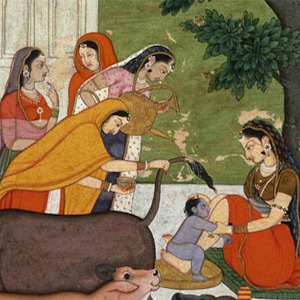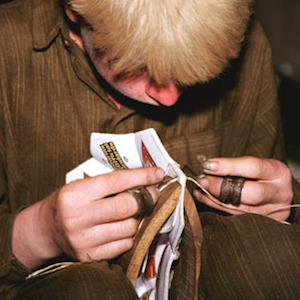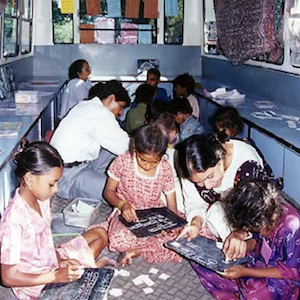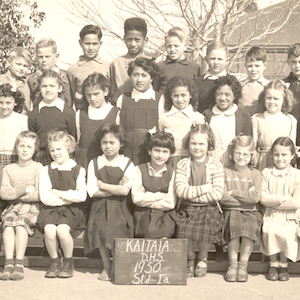Culture

Krishna Defeats the Whirlwind
Krishna is known in the stories of the Bhagavata-Purana as the 8th incarnation of the god Vishnu, destined to perform great deeds and remove the evils of the world.

Krishna and the Cremation of Putana
Krishna is known in the stories of the Bhagavata-Purana as the 8th incarnation of the god Vishnu, destined to perform great deeds and remove the evils of the world.

Soccer Ball Assembly Using Child Labor
This photograph of a boy stitching together the parts of a soccer ball was taken in Pakistan in 1998 to document the use of child labor in manufacturing soccer balls and other athletic equipment in South Asia. In the upper right hand corner of the photo, a young girl is also working.

Fire Hair Shaving and Khwan Ceremony, Thailand
The text and photographs above describe a traditional Thai birth ritual that celebrates the child's reaching the milestone of one month old, at which time its survival seems more assured than at birth, and it becomes a full-fledged member of the family.

Doorstep School-on-Wheels, Mumbai
The photograph shows the School-on-Wheels, a project of the Doorstep School in Mumbai, or Bombay, India, which has been functioning since 1998.

Loy Krathong Celebration
The young boy in the photograph is placing a krathong, or "leaf cup," into the water to celebrate "Loy Krathong," a festival on the night of the full moon in November, the traditional celebration described in the text as a custom of long standing in Thailand (formerly called Siam).

New Zealand School Photographs, 1950 and 1964
Going to school was a universal experience for New Zealand children during the 20th century. Most attended locally if they were not at a boarding school, and the Special and Correspondence Schools served those who were disabled, ill or, living in isolated conditions.

Beatles Petition and Response
In April 1964, the U.S. Labor Department announced new rules for foreign entertainers. Applying through Immigration and Naturalization Service (INS), entertainers with unique talent would be allowed to enter.

Children and Daguerreotypes
Daguerreotypes were the first commercially viable photographic process. Developed by French chemist Louis Daguerre in 1839, the technique quickly made its way to the US in the 1840s, the beginning of what some historians characterize as the "golden age" of childhood.

Bronx Schoolyard
From left to right, this photograph shows four graffiti artists at work on a collaborative "production" in a Bronx schoolyard: DEATH, NIC 1, MEX, and NOX.